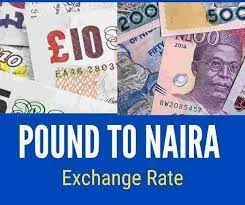
The parallel market exchange rate has experienced a significant decline, plummeting to a record low of N2040 per Great Britain Pound (GBP), driven by persistent demand pressures that continue to erode the currency’s value.
This marks a notable decrease of 5.39% or N110 compared to the N1,930 rate recorded the previous day.
This depreciation stands as an unprecedented occurrence, representing the lowest point in the historical performance of the Naira.
Concurrently, black-market exchange rates have continued to witness the devaluation of the Nigerian Naira, exacerbated by a substantial surge in inflation, as reported by the National Bureau of Statistics (NBS) for January 2024.
The inflation rate surged to 29.90%, indicating a significant rise from the 28.92% recorded in the previous month.
This data reflects a noteworthy uptick in the headline inflation rate for January 2024, with a 0.98% increase compared to December 2023 figures.
These developments persist despite the Central Bank of Nigeria’s (CBN) implementation of several policies aimed at bolstering the supply of foreign exchange (forex).
One of the recent policies was the CBN’s announcement of halting international oil companies (IOCs) operating in Nigeria from immediately remitting 100% of their forex proceeds to their parent companies abroad.
Similarly, the Naira depreciated against dollar in the parallel forex market, where forex is unofficially traded, with the exchange rate quoted at N1,655/$1, reflecting a 3.93% decrease from the N1,590 rate it closed at the previous day.
Additionally, the Naira weakened against the Euro by 4.09%, closing at N1720/EUR1 compared to N1650/EUR1 reported the previous day.
Market analysts attribute the recent decline to a consistent surge in demand for dollars that has been evident since the commencement of January. The primary contributors to this heightened demand include:
For President Biden’s supporters, it must seem like a slam dunk: The guy with decades…
Vladimir Putin began the second day of his trip to China on Friday by laying a wreath…
The Federal Inland Revenue Service (FIRS) has filed an amended four-count charge against Binance Holdings Limited…
The Confederation of African Football, CAF, has adopted a Nigerian language name for its official…
Justice Chukwujekwu Aneke of the Federal High Court, Ikoyi, Lagos, on Wednesday, sentenced Aluko Tunmise, a…
What is the Dollar to Naira Exchange rate at the black market also known as…